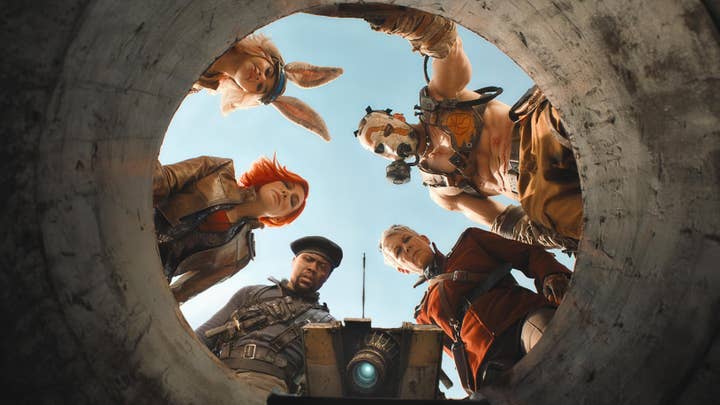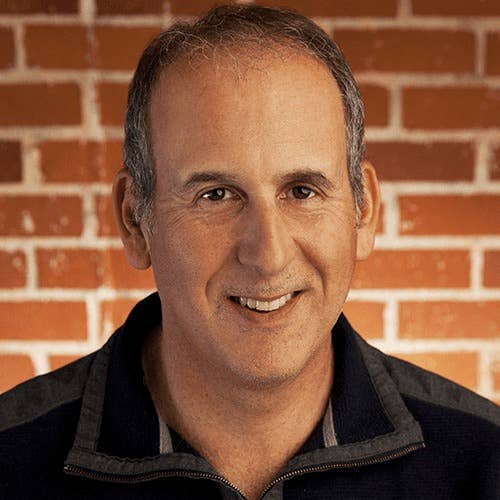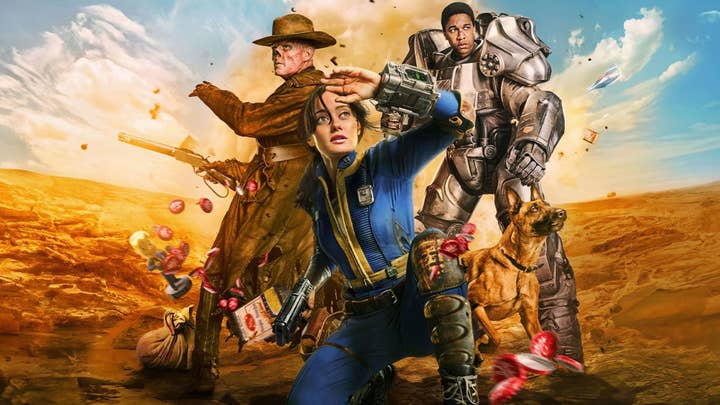Skybound predicts video game TV and movie love-in could last for ten years
CEO David Alpert and fellow co-founder Jon Goldman discuss the wait for the Dune of video game movies
The industry is enjoying a wave of acclaimed adaptations bringing hit games franchises to cinemas and televisions.
The Super Mario Bros Movie is still the third biggest animated film of all time (second before Inside Out 2 came out last month), the Fallout and Last Of Us series drew in millions of viewers, and Sonic The Hedgehog 3 is expected to continue the success of its forebears when it hits the silver screen this Christmas. The wave even continues this week with the debut of Gearbox's Borderlands movie.
David Alpert, CEO and co-founder of Walking Dead firm Skybound, is confident this is not a passing fad but the beginning of a much larger movement.
"If you look at the comic book movies, eighties and nineties adaptations were generally pretty shit – but then 2002's Spiderman kicked off a 20-year [run] of some of the most successful film and TV adaptations of all time," he tells GamesIndustry.biz. "I don't know that we're gonna hit 20 years for games, but I think we certainly are looking at a five to ten-year run here."
He continues: "If you look at the history of games adaptations into movies and TV, it was terrible for a long time, right? You go back to the original Street Fighter, the original Mario movie, Doom… these are not good movies and for a long time, Hollywood thought that games just weren't adaptable."
So what has changed? Alpert attributes the shift to two factors; firstly, the evolution of the video games themselves. People spend hundreds, sometimes thousands of hours in these immersive virtual worlds, with the Skybound CEO praising the level of character, story and depth in most modern titles.
"You look at the way that Dune was finally done... I want to see that level of awesomeness on a game movie adaptation. That's when the gold rush will come"
David Alpert, Skybound
Secondly, he points to "a technological sea change" in film and TV production. The original Jurassic Park, he says, had around 600 special effects shots throughout its entire runtime, but now this can be found in a single TV episode that's not even a full hour long – "That was just not practical even 10 years ago," he says.
Alpert particularly points to Fallout as a significant step forward in the screen adaptation of video games, believing it to be the most successful so far from a creative standpoint.
"Obviously Mario did huge business, my kids liked it, but I didn't want to re-watch the movie," he says. "Whereas I watched Fallout and I'm like, 'oh, this is completely true to the property, but also a good TV show.' I also thought Sonic was a really good film adaptation, shockingly, but I don't think we've yet seen a movie do what Fallout has done. I'm hopeful that it's coming, but I don't think we've seen it yet.
"You look at the way that Dune was finally done, and you're like, 'wow, that movie is amazing.' I want to see that same level of awesomeness on a game adaptation in movies. Once that happens, that's when the peak of the gold rush will come."
For years, Skybound has been exploring ways to bring properties from one medium into others, most notably with the various hit adaptations of comic book sensation The Walking Dead and more recently with superhero series Invincible, which also began as a comic. As more and more video game publishers are finding ways to bring their IP to other forms of entertainment, it demonstrates a shift in the mentality of film and TV companies – something that works to Skybound's advantage.
"When Jon [Goldman, co-founder], Robert [Kirkman, The Walking Dead co-creator] and I first met 20-plus years ago and were saying, 'hey, we want to make movies and TV based off comics and video games,' people were like, 'go away,'" he recalls. "Now, people are more receptive to the approach that we've been doing already."

Given Skybound's history in this field, we ask what does and doesn't work when it comes to adapting a video games IP into another medium. While it's smoother to adapt the story and characters of a book or comic into a film or TV series, the transformation from an interactive medium like video games to a passive one inherently runs the risk of losing some appeal.

Jon Goldman tells GamesIndustry.biz that it's not something you can "cook up in a laboratory"; The Walking Dead may be better known for its TV show today, but it was already a hugely popular comic book beforehand, which Goldman says "lays the groundwork" for doing things in other forms of entertainment.
Over the years, we've encountered scores of developers and publishers of all sizes confident that their IP can be a hit on the silver screen or streaming services, particularly after seeing the recent success stories from Nintendo, Sega, PlayStation and the like. But Goldman urges developers to focus on the bedrock of their franchise – the video games themselves – before seeking expansion elsewhere.
"We meet with young game developers all the time, and you should spend 100% percent of your resources making an awesome game," he says. "If you don't have an awesome game, you don't have any advantage in making a TV show compared to any completely original pitch from somebody else. In fact, if you don't make an awesome game, then TV partners probably won't want to work with you. You need to sell a lot of units, so make a great game".
Alpert adds that if companies do reach the stage when they can expand into other mediums, they should avoid treating adaptations like spin-offs or marketing tools.
"There's this concept of ‘primary and ancillary’ but you can't think that way anymore – everything is primary," he explains. "So if you have a great show and you make an okay game, the gamers are going to roast you, and if you have a great game and you make an okay show, no one's gonna watch it. You have to have some mark of quality to make that work."
There's no denying, however, that screen adaptations can serve as powerful marketing beats for video games. Sales of years-old Fallout games rocketed as the Amazon Prime Video series rose in popularity, as did sales of Mario games around Nintendo's movie. It's been interesting, however, that it is back-catalogue games that benefit from these successes; thus far, companies have yet to release a new video game day-and-date with its own film and TV show. Are publishers missing a major opportunity?
"I don't think they care," says Goldman. "If you look at the size of the games industry compared to filmed entertainment, they're already making a ton of money, and games companies in general have not been good at developing their IP themselves for filmed entertainment. The other thing you're seeing is the very biggest games are live service or some form of multiplayer social game – there is no day and date."
"If you don't make an awesome game, then TV partners probably won't want to work with you"
Jon Goldman, Skybound
He adds that most of the IP these adaptations have been based on are already hugely popular; when Nintendo brings out another Mario game, it doesn't need a film or TV show to support it.
Finally, Goldman observes that there is an interesting difference that the likes of film, TV and comics have compared to video games: the latter has what he describes as an "unbound business model."
"You can go everywhere from somebody who pays you nothing in a free-to-play game to paying thousands of dollars over the course of the year if they're a fan," he says. "Meanwhile, the TV model has gone to all-you-can-eat subscription prices, which puts a lot of pressure on creators."
Subscriptions have been on the rise in video games, with the likes of Xbox Game Pass, Apple Arcade and so on, but the model has yet to disrupt the industry in the way it has TV, film, music and so on. We ask Goldman if he believes the games industry's "unbound business model" is immune to that disruption.
"I think it's just different. Microsoft can afford to lose money forever, because the games are just a nice little business they do compared to the rest of their business," he says. "But for the rest of the industry, it's different than 'I've got a finite cost or budget for making eight episodes or two years' worth of whatever it is' versus 'I'm building a live operating game that is going to cost more and more as I run it.'
"Ultimately, if that model is successful, it will put the same downward pressure on developers and creators. I'm not predicting that the entire industry will transition that way very quickly because it's a different industry."

